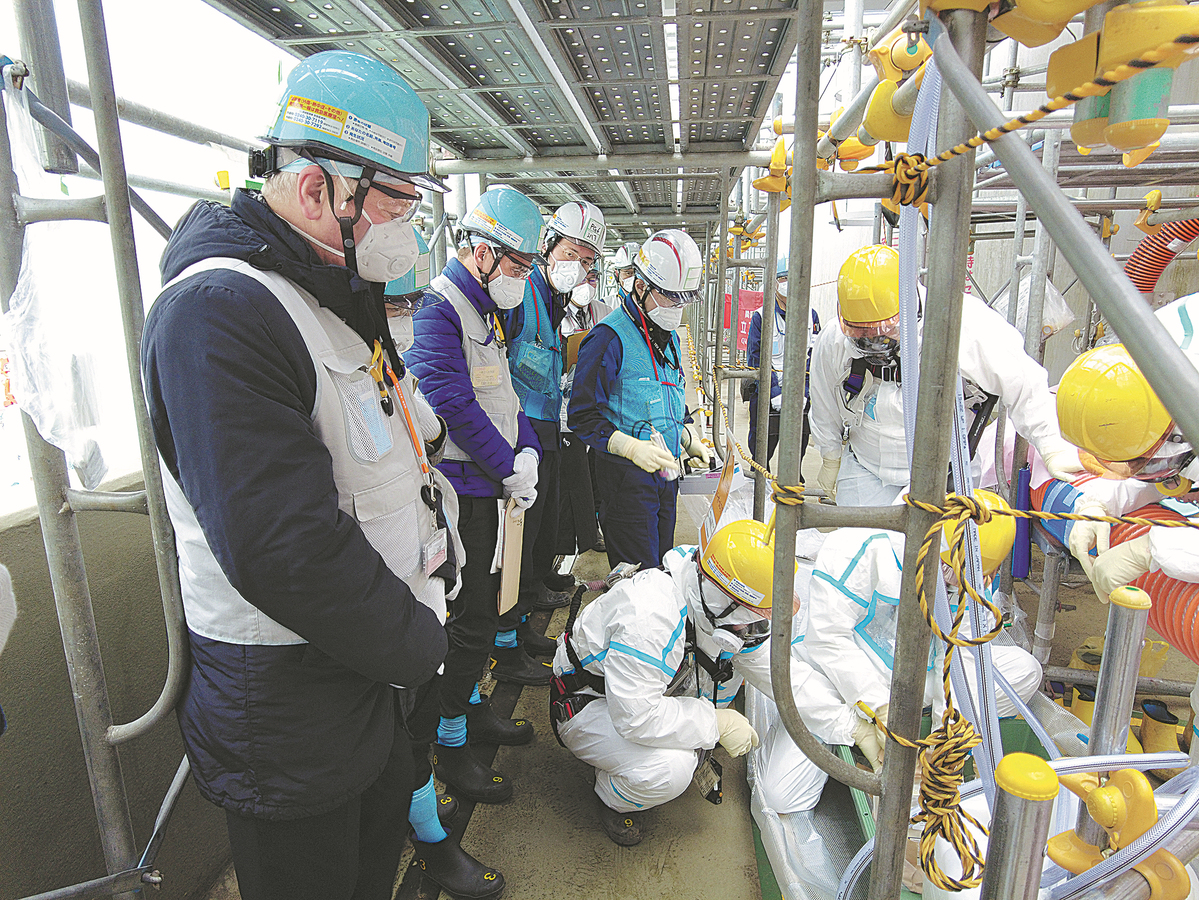IAEA's trip to Japan a 'step forward'


The International Atomic Energy Agency said on Friday it had made "a significant step forward" in its first mission to review Japan's plan of releasing nuclear contaminated water from the crippled Fukushima nuclear plant into the sea.
"The mission allowed the IAEA task force to gain a much better understanding of Japan's plans and activities related to the water discharge," said Lydie Evrard, the IAEA's deputy director-general and head of its nuclear safety and security department.
"This is a significant step forward in the task force's work aimed at assessing their adherence to the IAEA safety standards."
Since Monday, an IAEA task force has been in Japan to assess the country's plan. Evrard said the past weeklong mission had been focused on technical matters related to the roles and responsibilities of operator Tokyo Electric Power Company and Japan's Ministry of Economy, Trade and Industry in the water discharge process.
The IAEA task force will also carry out a separate mission toward the end of March to discuss regulatory aspects with Japan's Nuclear Regulation Authority. It will release a report on this week's mission in two months with more details on the discussions of specific technical issues.
"We will also carry out follow-up missions to Japan this year and next, and a comprehensive report with conclusions will be published before the water release starts," Evrard said.
More than 1 million metric tons of water is now stored near the Fukushima Daiichi nuclear power plant. The water has been used to cool highly radioactive damaged reactor cores as the 2011 massive earthquake and tsunami destroyed the plant's cooling systems, triggering the meltdown of three reactors and the release of large amounts of radiation.
In April, Japan unilaterally announced that it will gradually dump the still-contaminated water into the sea starting from spring 2023. The announcement quickly provoked concern and condemnation from local communities, fishing industries and neighboring countries including China, South Korea and the Pacific Island countries.
Weeks before the IAEA task force started its mission, the Japanese government had banned sales of black rockfish from Fukushima after a catch in late January was found to be 14 times more radioactive than the legally permitted level.

































